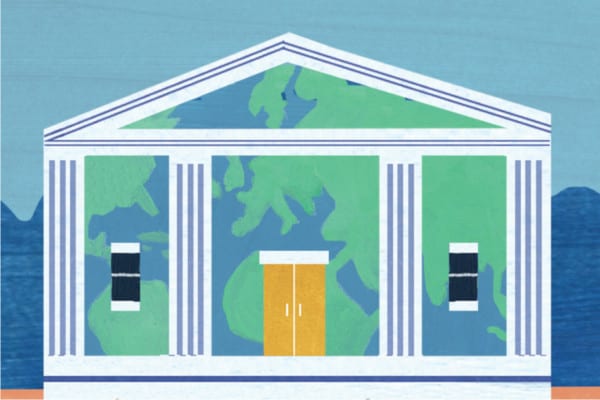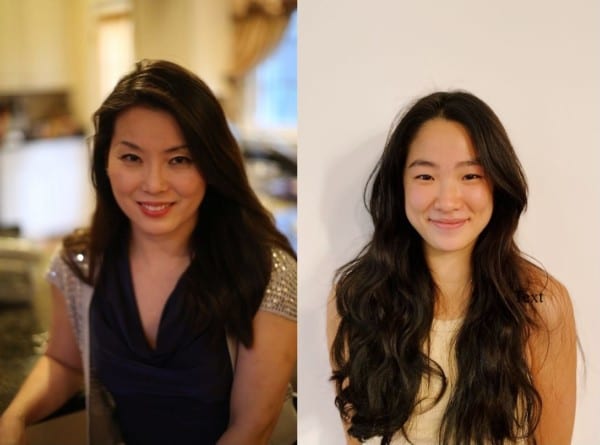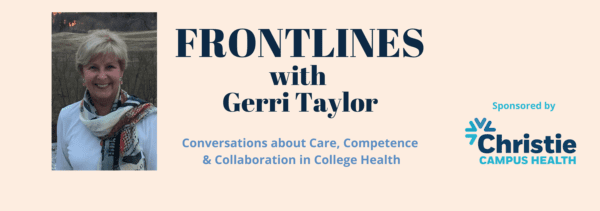“Did That Just Happen?” provides an in-depth guide on how organizations can not only create but also sustain diverse and inclusive environments. Authors Dr. Stephanie Pinder-Amaker and Dr. Lauren Wadsworth, two clinical psychologists with marginalized identities themselves (Black and Queer), use real-life examples to show the negative impact marginalization can have on organizations and employees and the value that working on these issues holds for future success. Both work together at McLean Hospital/Harvard Medical School, specializing in furthering diversity and inclusivity.
For over 25 years, Dr. Stephanie Pinder-Amaker has dedicated her work towards college student mental health. She is the founding director of McLean Hospital’s College Mental Health Program, a professor at Harvard Medical School, and the McLean Hospital-Harvard Medical School’s chief diversity, equity, and inclusion officer.
Dr. Lauren Wadsworth serves as a senior advisor on the Anti-Racist, Justice, and Health Equity team at McLean Hospital/Harvard Medical School. She is the founder of the Genesee Valley Institute of Psychology (GVIP), a clinic providing treatment for OCD, trauma, DBT, and a newly launched Racial Trauma and Healing center.
MCI: You’ve both had extensive experience in diversity, equity, and inclusion. What about this work motivated you to write a book such as this about these issues – and at this particular time?
As psychologists who hold marginalized identities (Black, Queer) in settings where we were often the “only,” we were called upon to provide “diversity training.” The only issue was that providing training on Diversity, Equity & Inclusion often makes (privileged) people uncomfortable, defensive, and angry. We were inspired to write the book, both for others like us to slip under the door of their boss or colleague in hopes of making change within their organization, and for the well-intentioned boss/leader/ally who wants to do better. We say the things that are hard or dangerous to say in the workplace, and provide practical skills that people can learn and apply today. The inflection point, marked by the global pandemic and racial reckoning, occurred as we were midway through writing the book and heightened our sense of urgency.
MCI: What is the significance of the title: “Did That Just Happen?”
Anyone who has experienced an Identity Related Aggression (IRAs, a term we coined to take the “micro” out of “microaggression”) can relate to that moment when you pause for a reality check. Was that about race?! Did they really just say something homophobic?! It can feel surreal and destabilizing. We decided to open each chapter with a real-life narrative capturing these Did That Just Happen?! moments. It’s especially important for people who have power and privilege to recognize these moments, because they are ideally positioned to respond with corrective and healing actions. We refer to this in the book as “moving beyond the freeze” and provide practical steps people can take.
MCI: In your examples, you bear out a common phenomenon where people who make assumptions resulting in identity-related aggressions do so with little self-reflection or concern, even though these can be hurtful – even traumatizing – for the person hearing them. As clinicians, why do you think this continues to happen?
First, it’s really uncomfortable to realize you have caused someone pain, and to sit with the pain you caused. As humans, we are adept at avoiding uncomfortable feelings, as we aren’t rewarded for feeling pain. This phenomenon continues to play out at an organizational level because we haven’t learned how to create environments in which all people feel seen, safe, and valued. These are essential components of inclusive workspaces. Organizations often focus on “achieving diversity” as if that’s the end goal. It’s not nearly enough. This makes Identity Related Aggressions (IRAs) inevitable, and they are costly mistakes. We often skip important preliminary steps like asking “Why aren’t we diverse in the first place?” and investing in the wealth of available DEI training, resources and expertise (frequently external). We can begin by deepening our understanding of our unique positionality as one way to better relate to and empathize with people who don’t share our identities. If we can strengthen our ability to tolerate the personal angst and pain of knowing that we’ve messed up and hurt others by committing IRAs, we’ve dramatically increased the odds of eliminating these behaviors.
MCI: You provide expert advice on how to create and sustain identity-affirming workplace cultures. But obviously there is a lot of work to do. How optimistic are you that these practices can be taught and learned?
One thing that we have in common is that we are forever optimists! We are hopeful that these practices can be taught and learned – we see it happen every day in our consultation work. As painful as the last couple years have been, we have seen an increase in the willingness for folks with privileged identities to admit that racism, sexism, and other isms are real, and have seen an increased desire for self-growth and change. One of our goals for the book was to make this growth/change as accessible as possible. It is our hope that readers will find the skills easy-to-try, and that the positive effects will inspire continued approach to this difficult, lifelong work.
MCI: What are the biggest barriers to achieving these types of cultures?
One of the biggest barriers we see is companies being willing to hire more diverse teams, but not realizing they need to invest emotionally and financially to create a sustainably diverse team. Companies try to “fix” diversity issues by hiring a speaker for a one-hour workshop. If it was possible to fix in one hour, don’t you think that would have been done a long time ago? To create a truly sustainably diverse team, companies need to invest in ongoing iterative training and skills practice. Individuals need to welcome feedback and continue to approach their colleagues with openness and humility. “Achieving inclusive cultures” is not a destination; It’s a lifelong journey.
MCI: What would you say are the most important things about this work that most people don’t know or won’t acknowledge?
We hope more people will acknowledge that these issues (these “isms”) are longstanding. Identity-related crises are not due to the events of that week, but rather, decade/century-long processes and patterns that uphold systemic oppression. Racism, sexism, transphobia, etc. have been here, and are here to stay, until we practice lifelong commitment to continuous pressing against them/undoing them. People may not want to realize how big this task is, but we’ll need to be willing to hold that as a community before we can truly move forward. In fact, people with rising identities have been holding that pain alone this whole time. To make longstanding change, we need to be willing to lose privilege and hold pain with those who are being oppressed.




